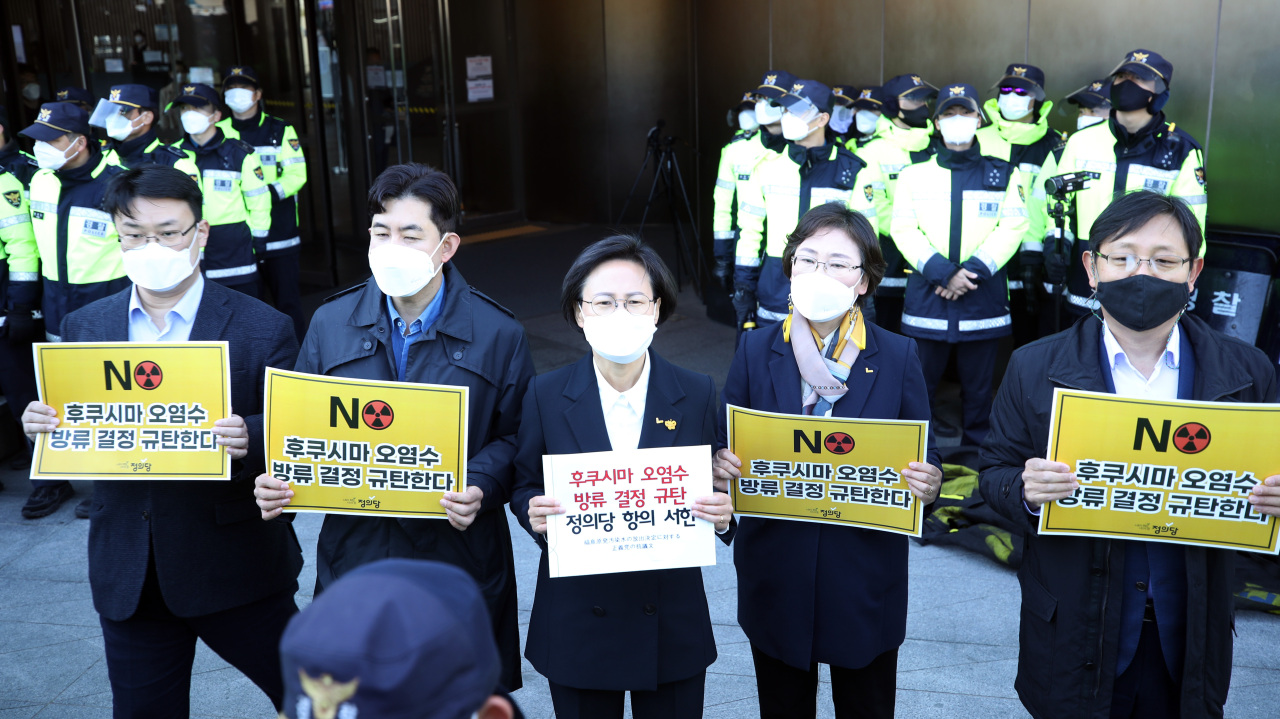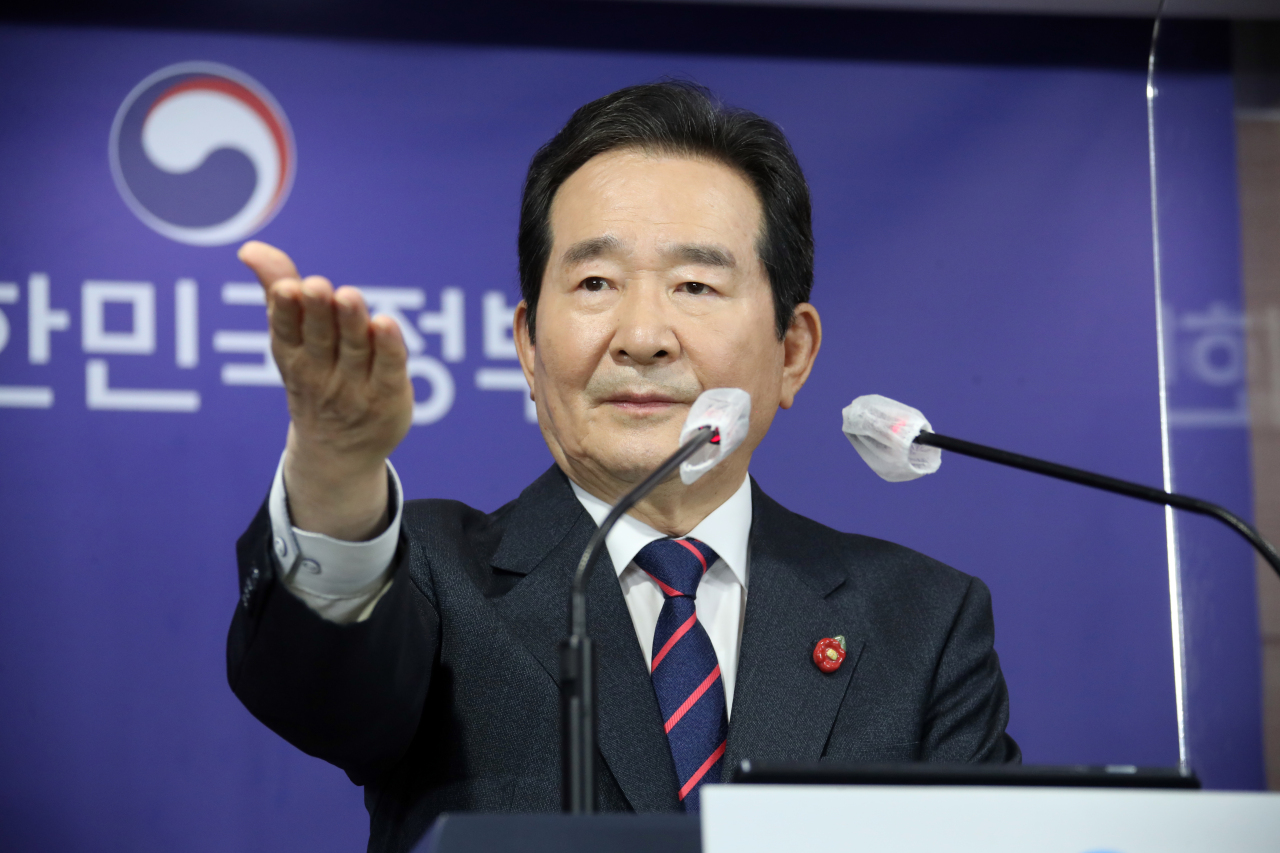Amy Coney Barrett’s first term was a master class in performing centrism.
On this week’s episode of the Waves, Dahlia Lithwick and Mark Joseph Stern reviewed Amy Coney Barrett’s first term on the court. They talked about the circumstances on which she arrived on the bench, how she wants to be perceived and why she is succeeding. A part of their conversation has been excerpted below. Listen to the full episode:
View TranscriptGet More of The Waves
Slate Plus members get extended, ad-free versions of our podcasts—and much more. Sign up today.
Join Slate PlusSubscribe to The Waves
Copy this link and add it in your podcast app.
copied!For detailed instructions, see our Slate Plus podcasts page.
Mark Joseph Stern:A few months ago, I was talking to Mary Ziegler about Amy Coney Barrett—Ziegler is a professor of law at Florida State University, where she covers abortion law and abortion history—and she told me that she thinks Amy Coney Barrett wants to be perceived as a serious intellectual, that Amy Coney Barrett doesn’t want to be perceived as a sort of instrumental transactional vote that Republicans sort of crammed onto the court at the last minute to further their agenda, that she is a really brilliant person who wants to be perceived as an independent, neutral, thoughtful institutionalist. And for that reason, she wasn’t going to be in a rush to effect her own agenda, which would include probably ending the right to an abortion.
Now, Mary said that to me just a few weeks before the Supreme Court took up a case that is a direct challenge to Roe v. Wade, which the court will hear next term and may well use to end the constitutional right to abortion, with Amy Coney Barrett’s vote as potentially the decisive one. But I still think that Mary was onto something there, and this has really informed my own view. I do think that Barrett cares about how she is perceived, unlike somebody like Sam Alito or Neil Gorsuch, who truly do not care how the press and the public think about them. I do think that Barrett wants to be seen as this kind of professorial, thoughtful, maybe understated, but quietly brilliant jurist. I don’t know though, if that’s the person we’ve seen in action over the last nine months on the bench, and I’m very curious what you think.
Advertisement Advertisement Advertisement AdvertisementDahlia Lithwick: I think that there is a very, very cartoonish sense still going into next term when abortion is on the chopping block. If Amy Coney Barrett doesn’t write the sentence ‘Roe v. Wade is overturned,’ she will have been a moderate. And that’s just the way we construct the narrative around the court. But she doesn’t have to write the sentence ‘Roe v. Wade is unconstitutional and overturned’ in order for abortion to be fundamentally inaccessible in the many, many states where there was only one clinic.
And so I think that we’ve just yet again set this up as a game that she can only win. And then when she does the tiniest faints such as, “Hey today in Fulton, I’m not overturning a 1990 case,” we say, “Man, she loves those adoptive same-sex parents in Philadelphia.”
AdvertisementMark Joseph Stern: So let’s flesh out the case so this makes more sense—so Fulton v. Philadelphiais a case about a Catholic social services agency that participates in Philadelphia’s foster care system, and works to screen and certify prospective foster parents to tell the city, hey, these folks will be good parents. They check all these boxes. They should be able to foster. And this agency refuses to work with same-sex couples. They don’t like them. They don’t believe in their marriage and so on. They say, “We will not screen our certified same-sex couples.”
AdvertisementThe city of Philadelphia says, “Oh, OK. Well, the problem here is that by turning away prospective foster parents, you would be shrinking the pool of loving homes in which children can be placed. So we are going to let your contract expire and not give you more taxpayer dollars to discriminate against same-sex couples. And in fact, it’s our policy, it’s our rule, it’s our law that all of our contractors have to treat LGBTQ people equally.”
Advertisement AdvertisementThe Supreme Court comes in and says, “Actually no, Philadelphia violated the free exercise clause when it ended this contract,” but it did so on a really bizarre kind of flimsy narrow basis. It was a dodge and everyone recognized. And the Barrett concurrence in this case may be the most important opinion of them all, right? Because Barrett, joined by Kavanaugh and in part by Stephen Breyer, said, “Yeah, I’m going along with the majority. I don’t love this precedent that’s not so protective of religious liberty, I don’t know that it’s right, but I’m not willing to overturn it yet. I’m not sure what to replace it with.”
And because of that brief decision, which I did think was somewhat scholarly and cited to various scholarly articles, and certainly sounded like something a professor would say—that drew a lot of attention to her, and made a lot of people applaud on the left and say, “hey, it’s not the apocalypse yet.” But she’s got at least like 30 more years to either change her mind or take a different route to get to where conservatives want to go. So it’s not clear to me if her concurrence really mattered or whether she was kind of playing everybody and managed to help craft a narrative in classic John Roberts style to make her conservatism seemed like centrism.
Advertisement Advertisement AdvertisementDahlia Lithwick: Maybe let’s end on voting, only because all the focus on, “Huh, Barrett and Kavanaugh, are they centrists after all,” I think distracts so profoundly from what just happened to voting rights. The term ends with two incredibly consequential decisions, both 6-3, that really in a systems way really, I think imperils the project of democracy, right?
AdvertisementMark Joseph Stern: Absolutely. You’ve got all six justices in Brnovich v. DNC, the big case of the term, really gutting the Voting Rights Act and sort of neutering this decades-old law that prohibits any voting restriction that results in a disproportionate disenfranchisement of racial minorities.
Popular in News & Politics
- A Great American Con Led to the Mess on College Campuses. Everyone Fell for It—Again.
- The Trump Defense Made Hope Hicks Cry. The Prosecution Got What It Wanted.
- There’s One Part of Brittney Griner’s Account of Life in Russian Prison That Really Stands Out
- Only One Thing Will End the Protests—and Relieve Joe Biden of This Gigantic Headache
So the six conservative justices take this revolutionary law that was supposed to stamp out the last vestiges of Jim Crow and prevent states from passing any kind of voter suppression measure that has a disparate impact on racial minorities and turn it into nothing, right? Flattens this law into mere symbolism, creates this multi-factor test that has no relationship to the text of the law, and just manipulates it to ensure that lower courts will uphold essentially all restrictions on the franchise under what remains of the Voting Rights Act. And Barrett joined that opinion in full. And Kavanaugh joined that opinion in full. They didn’t write anything else. They didn’t have any concerns or qualifications. And yet, despite casting the fifth and six votes, they got almost no attention, right? That was not, “Oh, look at these two justices dragging the court far to the right.” It was, “Oh, an aberration,” in an otherwise agreeable term, which strikes me as a fundamentally wrong way to think about a decision that constitutes an attack on the one right that is preservative of all other rights.
Advertisement AdvertisementDahlia Lithwick: So this is, I think, the disconnect. I still don’t fully understand all the ramifications of changing the test for section two in the Voting Rights Act. But I think this is the kind of stuff that is going to have the effect of making it harder to vote if you’re Native American in Arizona, of making it harder to vote if you’re Black in Georgia, of making it harder to vote if you’re Latino in Texas. And that’s the kind of stuff that we should be focusing attention on, not whether or not Amy Coney Barrett can write moderate centrist opinion when she wants to.
Tweet Share Share Comment(责任编辑:资讯)
 13 Places to Find Little Legends and Compact Cryptids
13 Places to Find Little Legends and Compact Cryptids South Korea to suspend inter
South Korea to suspend inter Time's Up releases guide to help actors better understand their rights
Time's Up releases guide to help actors better understand their rights The history of “assimilation” as a racist code word.
The history of “assimilation” as a racist code word. Yoon, US Senate's armed service committee chief discuss alliance, N.K. threats
Yoon, US Senate's armed service committee chief discuss alliance, N.K. threats
- Alcaraz vs. Van de Zandschulp 2024 livestream: Watch US Open for free
- Republicans in Congress try to gently dissuade Trump from tariffs.
- 99 very good names to give your house plants
- Judge Curiel reminds Trump that he's not actually Mexican.
- 海丰芥蓝入选全国名特优新农产品名录
- Vulnerable software that helped cause Equifax breach still being used by major U.S. corporations
- South Korea to suspend inter
- Periscope makes live broadcasts more like talk shows
-
 The vast majority of our portable electronic gadgets, and the new wave of electric transportation, a
...[详细]
The vast majority of our portable electronic gadgets, and the new wave of electric transportation, a
...[详细]
-
Political parties press Tokyo further over Fukushima water discharge decision
 Members of the minor progressive Justice Party stage a protest against the Japanese government's dec
...[详细]
Members of the minor progressive Justice Party stage a protest against the Japanese government's dec
...[详细]
-
喜讯!广西宁明一家企业获“2023年粤桂协作先进民营企业”称号
 喜讯!广西宁明一家企业获“2023年粤桂协作先进民营企业”称号_南方+_南方plus10月17日,2023年“粤企入桂”助力广西乡村振兴现场推进会在广西桂林举行,对先进民营企业予以表彰。广西宁明铭祥防
...[详细]
喜讯!广西宁明一家企业获“2023年粤桂协作先进民营企业”称号_南方+_南方plus10月17日,2023年“粤企入桂”助力广西乡村振兴现场推进会在广西桂林举行,对先进民营企业予以表彰。广西宁明铭祥防
...[详细]
-
UAE used 'Karma' hack tool to spy on iPhone photos, texts, and more
 The barrage of bad news for the iPhone keeps coming.Reuters has published a semi-worrisome report ab
...[详细]
The barrage of bad news for the iPhone keeps coming.Reuters has published a semi-worrisome report ab
...[详细]
-
[Graphic News] Average book price nears 20,000 won
![[Graphic News] Average book price nears 20,000 won](http://res.heraldm.com/content/image/2024/08/28/20240828050746_0.gif) The cost of purchasing a book in South Korea is approaching 20,000 won ($14.80), according to recent
...[详细]
The cost of purchasing a book in South Korea is approaching 20,000 won ($14.80), according to recent
...[详细]
-
Cheong Wa Dae to soon announce PM's resignation, replacement nomination: sources
 This file photo shows Prime Minister Chung Sye-kyun gesturing to a reporter during a press conferenc
...[详细]
This file photo shows Prime Minister Chung Sye-kyun gesturing to a reporter during a press conferenc
...[详细]
-
 26日,受市人大常委会党组书记、主任李伊林委托,市人大常委会党组成员、副主任李勇主持召开市人大常委会党组扩大)会议,传达学习党的十九届二中全会精神,省委办公厅《关于学习贯彻党的十九届二中全会精神的通知
...[详细]
26日,受市人大常委会党组书记、主任李伊林委托,市人大常委会党组成员、副主任李勇主持召开市人大常委会党组扩大)会议,传达学习党的十九届二中全会精神,省委办公厅《关于学习贯彻党的十九届二中全会精神的通知
...[详细]
-
New virus cases around 700 for 2nd day; further spike in offing
 Medical workers collect samples from a person for COVID-19 testing at a makeshift screening station
...[详细]
Medical workers collect samples from a person for COVID-19 testing at a makeshift screening station
...[详细]
-
 8月25日中午,烈日当头,热浪滚滚。环卫工人王芳走进青江街道汉碑路社区户外劳动服务站点汉驿站,从冰箱里拿出今天的午饭。“我一上午在马路两侧来回保洁,到了中午能到驿站休息一会儿,喝点凉水,感觉非常舒服。
...[详细]
8月25日中午,烈日当头,热浪滚滚。环卫工人王芳走进青江街道汉碑路社区户外劳动服务站点汉驿站,从冰箱里拿出今天的午饭。“我一上午在马路两侧来回保洁,到了中午能到驿站休息一会儿,喝点凉水,感觉非常舒服。
...[详细]
-
NK efforts to evade sanctions unsuccessful: expert
 North Korean flag (AFP-Yonhap)UN sanctions on North Korea are believed to be pressuring the country,
...[详细]
North Korean flag (AFP-Yonhap)UN sanctions on North Korea are believed to be pressuring the country,
...[详细]
Against All Odds: How Netflix Made It
Dell's flexible display concept hints at a bendy laptop future

- How much for Oasis tickets? Fans joke about splurging on reunion shows
- Biegun planning visit to Korea as early as July
- Periscope makes live broadcasts more like talk shows
- 签约1.1亿元!“粤企入桂”助力广西融水乡村振兴
- Understanding Relational vs. Non
- Deirdre O'Brien to replace Angela Ahrendts as retail chief at Apple
- This video shows the hilarity of teaching parents how to use technology
